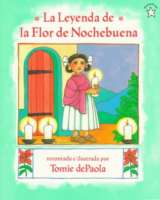
When Lucida is unable to finish her gift for the Baby Jesus in time for the Christmas procession, a miracle enables her to offer the beautiful flower we now call the poinsettia.

When Lucida is unable to finish her gift for the Baby Jesus in time for the Christmas procession, a miracle enables her to offer the beautiful flower we now call the poinsettia.
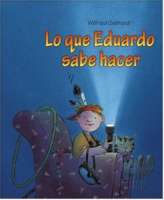
Eduardo is too busy imagining adventures to learn how to tie his shoes, but when his friend Clara is in trouble, his mother shows him that knowing how to tie your shoe can come in handy.
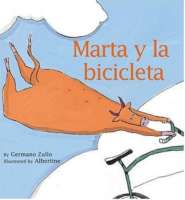
While the other cows on Monsieur Gruyere’s farm dream about becoming train engineers, Marta opts to ride the much quieter bicycle, and after a year of practice, becomes a skilled rider.
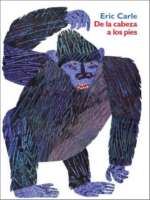
¡Puedo hacerlo! es el mensaje alentador que transmite a los niÑos este divertido libro interactivo ilustrado. Una diversidad de animales conocidos, representados a travÉs de collages Ilenos de color, invita a los pequeÑos a imitar sus travesuras moviendo la cabeza y las caderas, dando palmadas y golpes en el suelo o simplemente moviendo los dedos del pie.
Los movimientos sugeridos en este libro han sido cuiclaclosamente escogidos de manera que sirvan como ejercicios para cada una de las partes del cuerpo. Mientras juegan, los niÑos adquirirÁn destrezas importantes como escuchar con cuiclado, concentrarse, comprencler la palabra hablada, seguir instrucciones, aceptar retos y controlar los movirnientos cle sus cuerpos.
Las risas cle placer no dejaraÁn de oirse mientras los niÑos (¡y los mayores tambiÉn!) participan en el juego.
“La alegrÍa y el placer de aprender y de crecer siempre son parte de los libros de Eric Carle. De la cabeza a los pies no es una excepciÓn, pero quizÁ sea excepcional por el hecho de que insta a los niÑos a ‘moverse’ literalmente a medida que leen el libro. Ahora, ademÁs de escuchar, imaginar, descubrir, sentir y pensar, los niÑos pueden ser parte de la acciÓn. Es como si Eric Carle dijera a su manera, ‘Ven a jugar conmigo'”.
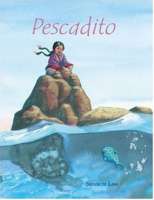
Rosa saves Little Fish from the pelicans and brings him home, but Rosa grows concerned as Little Fish grows bigger.
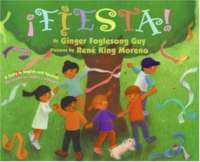
Horns, airplanes, and tops. Whistles, gum, and rings. What toys should the children choose? How many candies will they buy? And what will they do with all the things they buy? Open this book to find out and to count with them–in English and in Spanish. It’s easy!
Trompetas, aviones y trompos. Silbatos, chicle y anillos. Cuáles juguetes eligirán los niños? Cuántos dulces comprarán? Y, qué harán con las cosas que comprarán? Abre este libro para contestar esta pregunta y para contar con ellos–en español y en inglés. Verás que es fácil!
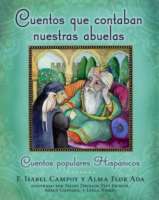
Estos cuentos han viajado por largo tiempo — sobre montañas, a través de mares y desiertos, llevados por el viento, contados por nuestros antepasados. Ahora llegan hasta ti. Una astuta zorra, un pájaro de mil colores, una gaita alegre, y una jovencita audaz…Esta antología de cuentos populares celebra la cultura Hispánica y sus múltiples raíces — indígena, africana, árabe, hebrea, y española. F. Isabel Campoy y Alma Flor Ada han recontado doce cuentos estelares que reflejan la fuerza del espíritu y la extraordinaria herencia de los Latinos. Cuatro ilustres artistas latinos enriquecen esta colección inolvidable.
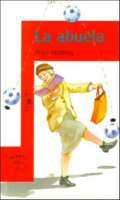
Karli loses his parentes in an accident and goes to live with his grandmother. Now they both have to adjust to living together. The relationship between Karli and his grandmother blossoms into a beautiful friendship.
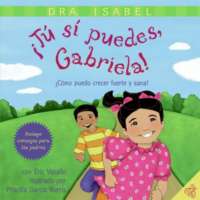
El cuerpo es como un carro, cuanto mejor es la gasolina que le pones, mejor corre.
Gabriela regresa en este entretenido segundo cuento de la Dra. Isabel, creado para ayudar a los más pequeños a prevenir la obesidad y el sobrepeso infantil. El libro incluye consejos útiles para los padres.
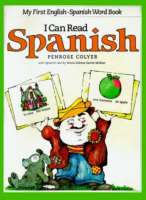
Double-page spreads contain cartoon-like illustrations and sentences, in both Spanish and English, about Miguel and his friends. An introduction covers pronunciation and includes tips on reading.